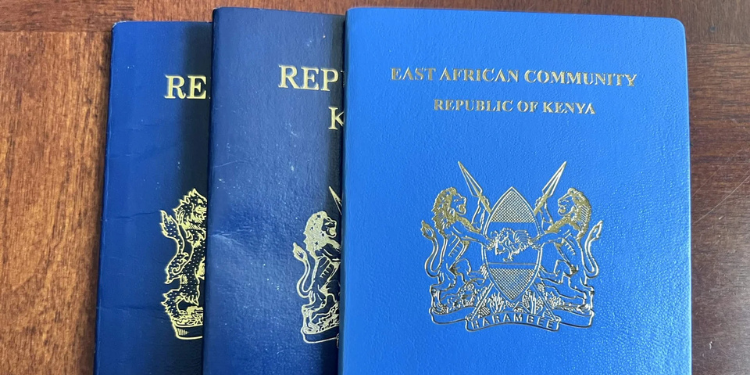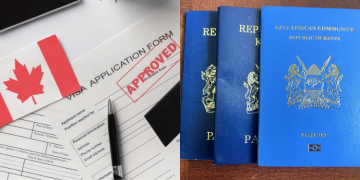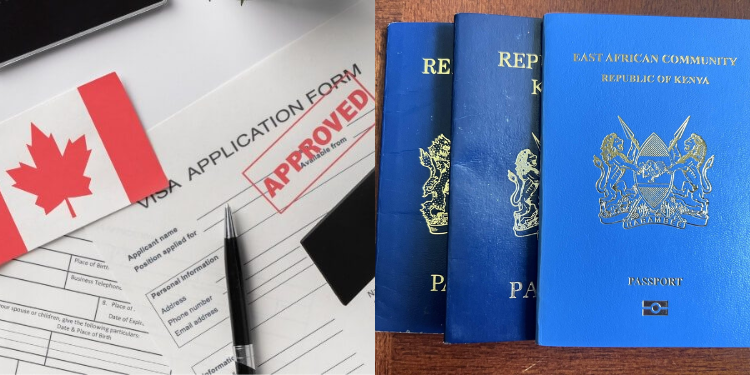The Canadian High Commission in Kenya has warned Kenyans about visa scams targeting newcomers.
In a statement on November 21, the Canadian High Commission stated that the scams involve texts from “IRCC” requesting personal information.
“Visa scam alert!” read the warning.
“Did you receive a text asking for personal information from “IRCC”?”
According to the Canadian High Commission in Kenya, Immigration, Refugees, and Citizenship Canada (IRCC) employees will never:
- Ask you to deposit money into a personal bank account.
- Rush you into paying fees immediately.
- Request that you transfer money or pay fees using prepaid credit cards, Western Union, MoneyGram, gift cards, or similar services.
- Threaten to arrest or deport you, or send police to arrest you for unpaid fees or to harm you or your family.
- Offer special deals to people seeking to immigrate.
- Promise that your file will be approved or given special attention in exchange for more money or information.
- Use free email services, such as Hotmail, Gmail, or Yahoo Mail, or social media to contact you.
- Ask for private information except to verify details you have already provided.
Also Read: Why UK Embassy Is Warning Kenyans About a 10-Year Visa Ban
Canadian Embassy List Types of Fraud Targeting Newcomers
The High Commission warned newcomers about common scams designed to steal personal information or money. These include:
1. Impersonation of Government Officials
Scammers may call or email, pretending to be Government of Canada staff, claiming that you have failed to file paperwork and threatening deportation or loss of immigration status unless you pay a fee.
IRCC officials stress that they will never threaten deportation over unpaid fees. Recipients are advised not to share personal information such as their Unique Client Identifier (UCI) or file number, and to be cautious even if the caller ID appears legitimate.
2. Phishing Emails or Text Messages
Emails or texts may appear to come from friends, family, or strangers, directing recipients to websites asking for personal or banking information.
Newcomers are advised not to click on links or provide information unless the sender is verified and the website is secure. Suspected phishing attempts should be reported.
3. Computer Virus Scams
According to the High Commission, some scammers claim your computer is infected and offer to remove the virus while attempting to access passwords and other private data.
Recipients are advised never to give remote access to unknown individuals and to use professional repair services or trusted antivirus software.
4. Fake Prizes and Contests
In addition, the High Commission warned that scammers may send messages claiming recipients have won prizes or contests they did not enter. Responding to the messages, Canada in Kenya warned, can confirm a real phone number to scammers.
The High Commission advises against replying and to forward such texts to 7726 (SPAM), which signals the providers to block future messages.
5. Tax Scams
Some individuals promise tax reductions or benefits that newcomers are not eligible for, sometimes claiming eligibility for periods before arrival in Canada.
Participating in such schemes can result in repayment of funds, penalties, fines, or jail time. Even if a tax return is prepared by someone else, the individual remains responsible for its accuracy and supporting documentation.
Also Read: Spain Embassy in Kenya Announces Changes to Visa Applications
How to Protect Yourself
The High Commission urged Kenyans to be cautious and reminded them that no one can guarantee a job, visa, or permanent residence in Canada, citing that only immigration officers at Canadian embassies, high commissions, and consulates have the authority to issue visas.
In addition, the High Commission noted that IRCC processing fees are standardized worldwide and must be paid in accordance with official instructions, with online payments accepted through the IRCC website.
Kenyans are advised to verify any communication claiming to be from Canadian authorities and avoid sharing personal or financial information with unverified sources.
Follow our WhatsApp Channel and X Account for real-time news updates.













































































